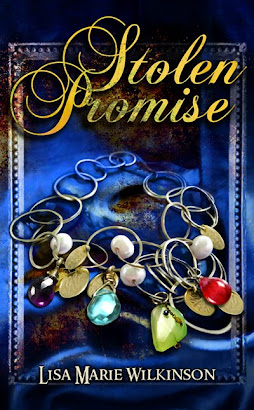I learned last weekend that my current work-in-progress, "Forget Me Not" is a finalist in the "Heart of the West" contest held by the Utah chapter of Romance Writers of America. This is thrilling for me because I'm currently in somewhat of a limbo stage between being unpublished and published, therefore I don't qualify for the majority of RWA chapter contests. My debut novel, a historical romance entitled "Fire at Midnight" will be released by Medallion Press in March of 2009.
As an unpublished writer, I received a great deal of encouragement from contest judges during my stint submitting entries on the unpublished contest circuit. While most folks might think that finding a publisher and having two historical romance novels under contract awaiting publication might provide sufficient validation, I still find myself listening to that insidious inner voice that constantly says, "You're terrible. You stink. Why are you spending all your free time trying to write stories when you obviously have no talent?" So, finaling in a contest where I'm competing with other published writers provides the boost I need to think if I finish my current WIP, I might interest a publisher in it as well. I wonder: are all writers neurotic like this, or is it just me?
I'm going to publish the full list of finalists in the Utah RWA "Heart of the West" contest, both unpublished and published, because the difference between those two categories is often just that one serendipitous moment when a writer's work connects with the right editor and the phone call or e-mail happens.
Congratulations to all!
16th Annual Heart of the West Writers Contest Finalists
Historical
The McCUTCHEONS by Caroline Fyffe
THE MASQUERADING DUKE by Stephie Smith
DONNE WITH LOVE by Sally Orr
THE RANCHER by Kelli Ann Morgan
Contemporary
HOT BODS by Dara-Lee Snow
SOUTH OF HER BORDER by Cindy Nielson
THEIR IMITATION MARRIAGE by Kirsty Cleverly
THE NEIGHBOR UPSTAIRS by Anne Lum
Mystery/Suspense
GUARDIAN ANGEL by Rita Henuber
STEALING BEST IN SHOW by Elizabeth Pina
DANCE AWAY, DANGER by Lexi Connor
AFTER THE WAR by Jessica Dawson
Paranormal
THE IMPETUOUS AMAZON by Sandy James
TOUCH OF TWILIGHT by Clarissa Ellison
WHEN LIGHTNING STRIKES by Maree Anderson
THE WIZARD'S ORPHANS by Rosemary Haggerty
Published
LOST IN LOVE by Kathy Johnson
PAYING THE PIPER by Rachel Brimble
DELICIOUS by Judie Aitken
FORGET ME NOT by Lisa Marie Wilkinson
Inspirational
THE QUEST by Dani Pettrey
SOURDOUGH CREEK by Caroline Fyffe
TURNING PAIGE by Kara Bonnevie
THE WALLET by Elizabeth Pina
Golden Pen- URWA Members Only
SOUTH OF HER BORDER by Cindy Nielson
THE RANCHER by Kelli Ann Morgan
THE SCARRED HEIR by Denise Patrick
CROSS MY HEART by Iamni Miller


